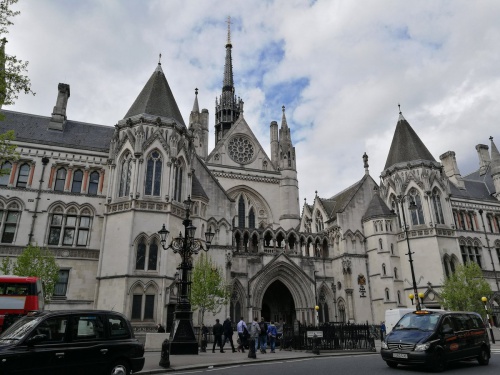Press Release issued on behalf of Care Not Killing
RELEASE DATE: Thursday 18th January 2018
RELEASE TIME: IMMEDIATE
Care Not Killing does not believe that the courts need to review the Conway Case again and will continue to oppose this latest attempt to change the law.
Mr Conway's lawyers have argued that the current blanket ban on assisted suicide under the Suicide Act is incompatible with his rights under section 8 of the Human Rights Act (respect for private and family life).
Only last year following a four-day hearing in the high court three senior and experienced judges dismissed their arguments. They summarised their conclusions as follows:
'It is legitimate in this area for the legislature to seek to lay down clear and defensible standards in order to provide guidance for society, to avoid distressing and difficult disputes at the end of life and to avoid creating a slippery slope leading to incremental expansion over time of the categories of people to whom similar assistance for suicide might have to [be] provided... we find that section 2 (right to life) is compatible with the Article 8 rights (private and family life) of Mr Conway. We dismiss his application for a declaration of incompatibility.'
The Divisional Court also refused permission to appeal.
There have been over ten attempts to legalise assisted suicide through British Parliaments since 2003, all of which have failed. The last of these was in 2015, which was defeated by an overwhelming majority of 330 to 118 in the House of Commons amidst real and well-founded concerns about public safety.
A change in the law is opposed by every major disability rights organisation and doctors' group, including the BMA, Royal College of GPs and the Association for Palliative Medicine, who have repeatedly looked at this issue in detail and concluded that there is no safe system of assisted suicide and euthanasia anywhere in the world.
Laws in the Holland and Belgium that were only meant to apply to mentally competent terminally ill adults, have been extended to include the elderly, disabled, those with mental health problems and worryingly even non-mentally competent children. While in Oregon, the model often cited by those wanting to change the law, there are examples of cancer patients being denied lifesaving and life extending drugs, yet offered the lethal cocktail of barbiturates to end their own lives.
Discriminating against the terminally ill and disabled people in law, by removing important and universal protections, risks putting pressure on vulnerable people to end their lives, because of real or imagined fears of being a burden upon relatives, carers, or on a state and health care system that is desperately short of resources.
The safest law is one like Britain's current law, which gives blanket prohibition on all assisted suicide and euthanasia. This deters exploitation and abuse through the penalties that it holds in reserve, but at the same time gives some discretion to prosecutors and judges to temper justice with mercy in hard cases.
We are confident that the appeal court judges will now dismiss this latest application to change the law.
For media inquiries, please contact Alistair Thompson on 07970 162225.
Ends
Notes for Editors
Care Not Killing is a UK-based alliance bringing together around 50 organisations - human rights and disability rights organisations, health care and palliative care groups, faith-based organisations groups - and thousands of concerned individuals.
We have three key aims:
- to promote more and better palliative care;
- to ensure that existing laws against euthanasia and assisted suicide are not weakened or repealed during the lifetime of the current Parliament;
- to inform public opinion further against any weakening of the law.
Further commentary: www.carenotkilling.org.uk/articles/conway-appeal-gets-green-light









